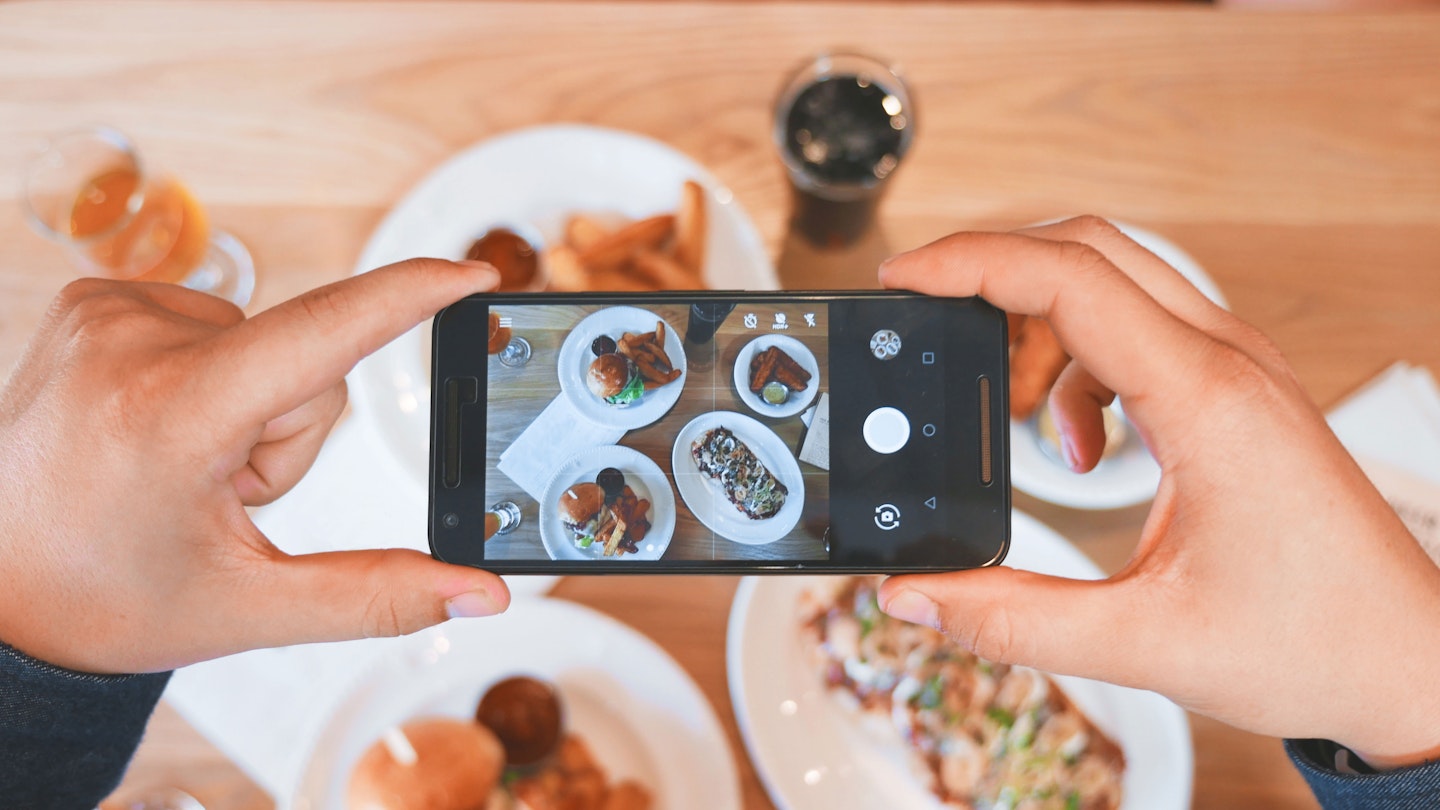Scrolling through your Instagram feed, you probably already see an abundance of #spon. The posts are hard to miss, a pretty flat-plan product picture, a familiar caption talking up the brand and the all-important ‘thank you @’tag. But when you dig deeper, are they all actually sponsored posts? It turns out, they’re really not.
According to The Atlantic, more and more wannabe influencers are posting pictures that appear to be sponsored, when actually they’re just handing out free promotion. Sydney Pugh, a lifestyle influencer in Los Angeles, told the publication she staged a fake ad for a local café, purchasing her own coffee but posting a picture as if she has a relationship with the brand.
‘Instead of [captioning] “I need coffee to get through the day, “mine will say “I love Alfred’s coffee because of A, B, C,”’ she said, ‘You see the same things over and over on actual sponsored posts, so it becomes really easy to emulate, even if you’re not getting paid.’
In fact, one influencer named Joshi even went along to a local amusement park where several bloggers were being paid to attend and share their experience, all to post promotional pictures as if she were a part of it, despite paying her own way for everything. Another, Taylor Evans, faked an entire trip to Miami as if it were a press trip, when she just went there on her own holiday.
‘I took a lot of pics at restaurants and posted “Thanks so much XYZ restaurant for the hospitality!”’ she said, ‘You say it in a way that people could interpret it as you having an established relationship with that brand … The hope is that it’s perceived in a way that looks like there’s a reason you’re in a different city and state, not just enjoying a weekend vacation.’
But why are they doing this? Well, according to Evans, it’s all in the hopes that other brands will see the ‘adverts’ and believe they’re being sponsored, in turn sponsoring them themselves. IT ‘makes you seem like you’re in a position to be getting things for free, which helps you build your brand or media kit,’ she said, ‘It makes you seem more established, like you have brands that you’re working with. That means you’re producing good content and you’re worthy of approaching and offering these opportunities to.’
According to the influencers, this trend is taking off in senior schools in the US. With sponsored posts or brand deals increasing kids ‘street cred’ in the corridor, fake posts have become the norm for 15 and 16-year olds who want to build a business online.
And it seems to be working, with Jason Wong, founder of Doux Lashes, a false-eyelash company, stating that he was duped by one influencer, hiring her to promote his product then finding out all of her brand deals were fake. Of course, these experiences mean that more brands are cross-checking potential partnerships, ensuring their previous deals were real.
However, this only means that the world of influencers is becoming more and more controlled by the brands that they sell. Promoting products for free not only pushes influencers who charge for sponsored content out of business, but it also creates a platform filled with advertisements of products that don’t necessarily deserve that level of credibility, both duping the consumer and growing the profit of a brand that may not actually be providing a product people really want.
‘I don’t think people know they’re screwing each other over,’ said one 22-year old TikTok star, CJ OperAmericano. Claiming people treat brand deals like a ‘verification badge’, she has personally lost out on brand deals to those will do it for cheaper, and says rates for sponsored posts have plummeted across the industry.
Of course, with beauty gurus like Jeffree Starr exposing what beauty brands charge for sponsored posts, and fitness influencer GraceFitUK starting a series of YouTube videos with other influencers to create transparency about the money behind the influencer industry, brands may not be in this position of power for very long. After all, as the brands who sponsor them are well aware, with their follower counts all they have to do is post one expose and they have the eyes and ears of millions
